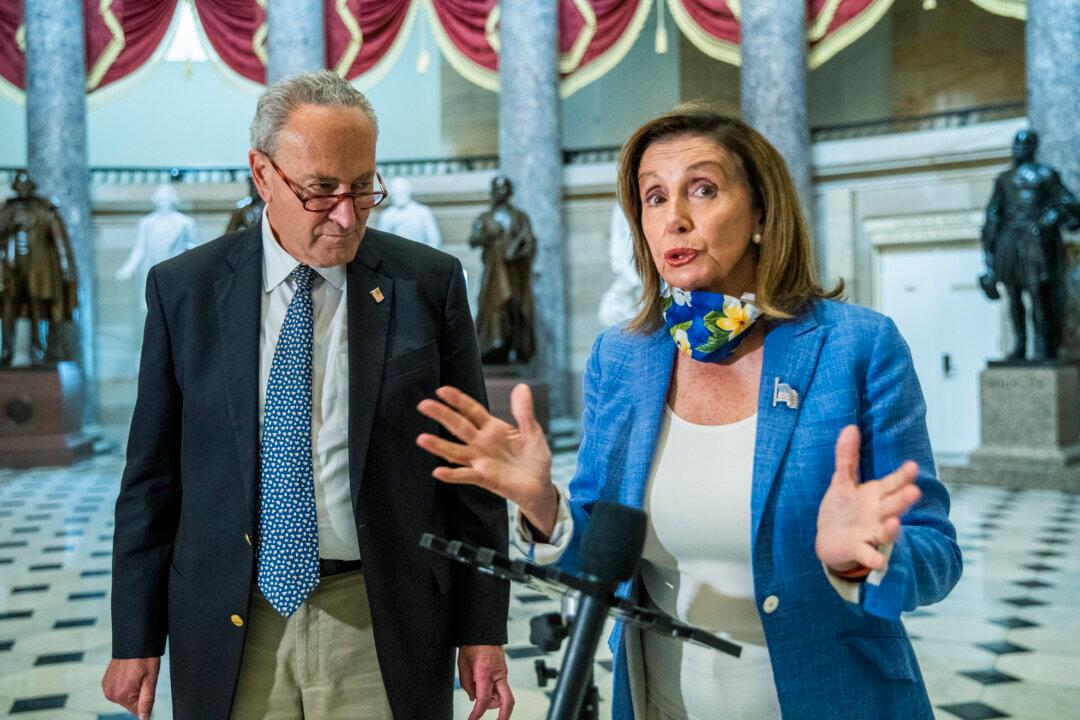After nearly two weeks of discussions, an agreement on COVID-19 relief funding is on the brink of collapse after little progress was made on several outstanding issues like expanded unemployment benefits, $1 trillion in aid to state and local governments, and liability protections.
“There’s a handful of very big issues that we are still very far apart” on a deal, Treasury Secretary Steven Mnuchin, the lead White House negotiator, told reporters on Thursday. He cited disagreements on aid to state and local governments, as well as the extra additional unemployment benefits of $600 per week.





